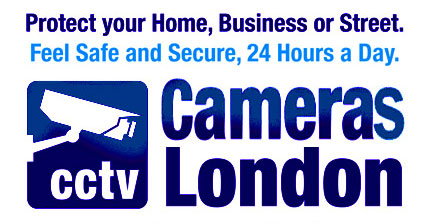Things you need to know before choosing an Intruder Alarm System
By CCTVCameraLondon Clark on December 17th, 2018
Request a Quote
Complete the form for a free no-obligation quote for CCTV installation
We all want to keep our homes and our business sites safe from vandals and burglars. It is well known that an Intruder Alarm lowers the chance of our site or home being robbed. Keeping this in mind the market has been flooded with so many DIY intruder alarm kits that is has become extremely confusing for a non-technical buyer, like millions of us, who wish to install the most effective intruder alarm system that will keep our properties safe and give us maximum peace of mind.
Most customers buy the intruder alarm because they can be connected directly to a local police station, so that the police can take immediate action when the alarm goes off. But things get complicated for the buyer, when they find out that the police act upon intruder alarm systems with great caution, as nearly 92% of alarm calls that the police answer are alarms. This is mostly caused by equipment error, or user error.
Users that make the wrong purchase have typically tried to reduce costs. They fall prey to cheap DIY intruder alarm systems and find themselves at a loss when the police do not accept their alarm. Hence, it is important for customers to understand that the Association of British Police Officers (ABPO) have an Intruder Alarm Policy, which lays guidelines for the type of alarms to install. ACPO defines them as Type A and Type B alarms as stated on the Metropolitan police website “ (http://www.met.police.uk/crimeprevention/alarms.htm)
Type A – Remote Signaling Alarms, including intruder alarms terminating at approved central monitoring stations. They must be maintained and used in accordance with British Standard 4737/BS EN 50131, BS 7042 (high security systems) or BS 6799 Class VI (wire-free alarms). Such alarms will be registered with the police and identified by a unique reference number (URN) and can include personal attack alarms. The police response to their activation will be based on the assumption that an offence is taking place. But against the background of competing urgent calls and available resources, such response will also be conditional upon the number of false activations in any 12 month period. Sites with a poor record may receive a lower priority from the police.
Type B – Audible Only and Hybrid Alarms, including bells-only and automatic dialing alarms, as well as alarms from non-compliant companies and non compliant central stations. URNs will not be issued for these systems. To obtain police attendance, in addition to their activation, Type B alarms will also require some indication that an offence is in progress, e.g. from a witness.
In simple terms, for highest security of your premises, you need a type A alarm system, which has a British Standard 4737/BS EN 50131 certifications or a BS 7042 (high security systems) or BS 6799 Class VI certification. Otherwise you might be at risk of not having immediate police assistance should your alarms go off.
If you would like to have a free quotation for an alarm system or maybe a free site visit or even a quick consultation over the phone with one of our advisors, then please feel free to contact us directly on – 020 7627 4402 or request a free call back by submitting your details via our website homepage “ https://cctvcamera.london We will be pleased to assist you.
